

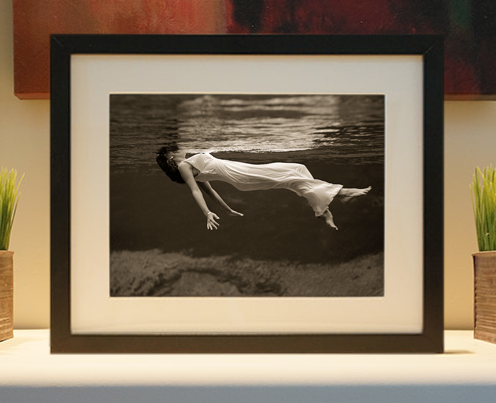
Framed or unframed, desk size to sofa size, printed by us in Arizona and Alabama since 2007. Explore now.
Shorpy is funded by you. Patreon contributors get an ad-free experience.
Learn more.

- Indiana Harbor Belt abides
- Freezing haze
- Corrections (for those who care)
- C&NW at Nelson
- Fallen Flags
- A dangerous job made worse
- Water Stop
- Passenger trains have right of way over freights?
- Coal
- Never ceases to amaze me.
- Still chuggin' (in model form)
- Great shot
- Westerly Breeze
- For the men, a trapeze
- Tickled
- Sense of loneliness ...
- 2 cents
- Charm City
- What an Outrage
- Brighton Park
- Catenary Supports
- Just a Little Before I was Born
- Afternoon normal
- The Flat Iron Cafe survives
- Aging in Place
- Raise your hand
- Good and Bad
- Oh, the 70's
- Nooooooi
- The aluminum tubing
Print Emporium
Goebel Brewing: 1905
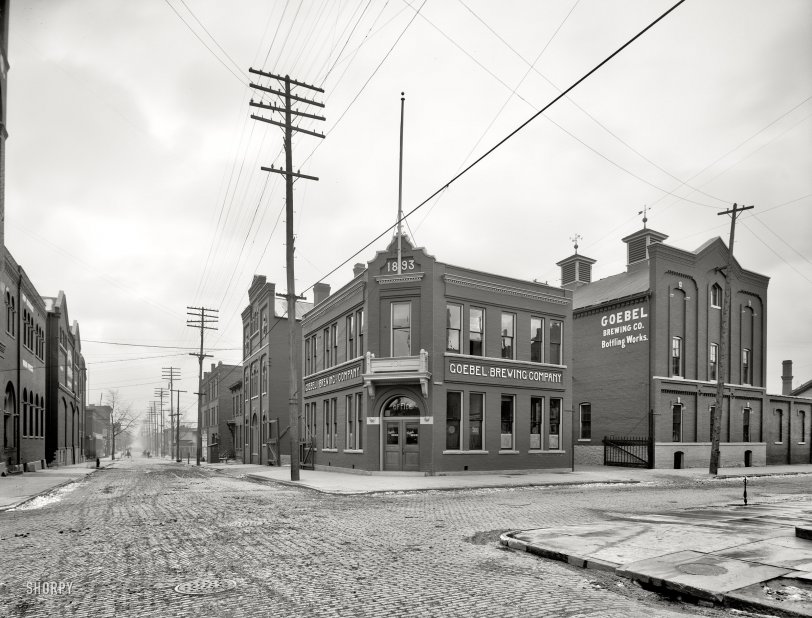
Detroit, Michigan, circa 1905. "Goebel Brewing Co., bottling works." 8x10 inch dry plate glass negative, Detroit Publishing Company. View full size.
Goebel
I drank that stuff in college in Virginia in the mid-80's.
We usually referred to it either as Joe-belle, the fine imported French beer, or Goebbels, the Nazi beer.
Friendlier Streets
Notice how much friendlier streets look, even in an industrial area, when the buildings are built up at the sidwalk, rather than set back behind a fence and a parking lot? This is what people mean when they talk about "walkability."
Gobel vs. Goebel
Strohs may have closed the bottling plant in 1964, but Goebels was sold at least into the 1970's here in the Detroit area. I remember tv commercials with comedian "Lonesome George" Gobel as pitchman.
Altered eagle
Goebel changed the eagle image from the "Thunder Eagle" to a more patriotic design because the Thunder Eagle too closely resembled the Nazi eagle emblem.
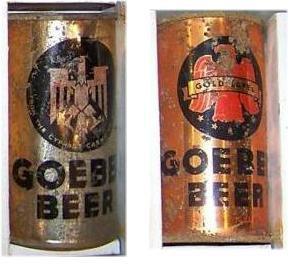
Ghost Dog
Is that a ghost dog by the fire Hydrant?
[A person, I think. Too tall for a dog. - Dave]
Corner of Rivard and Maple
Goebel was one of almost a hundred different brewers in Detroit around 1900. The largest, Strohs, like Goebel survived Prohibition by making near beer and selling malt extract for home brewing.
Beer and Ice Cream
The Goebel Brewery complex was located at the corner of Rivard and Maple. The street signs can be seen in the image just above the main doorway.
The Stroh Brewing Company was a Goebel competitor and rival with a brewery just a few blocks away across Gratiot Avenue. Stroh acquired Goebel in 1964. Stroh's also was in the ice cream business. The Stroh plant you see in the modern image makes ice cream.
Brew Math
Back in the 1950's, Goebel packaged its brew in 7-ounce bottles and one was retailed at half the price of a typical 12-ounce bottle of, for example, Esslinger or Schmidt's. So by buying two Goebels at a time, the consumer got two more ounces for his money, or at least that's the way it worked at the Deer Park Tavern in Newark DE when I was a student at the University of Delaware.
Home of Brewster the Rooster
I had relatives who worked at Goebel, which was eventually bought out by nearby Stroh's and closed down in 1964. Goebel advertised quite a bit, especially on baseball games. Their trademark was always a bird, which evolved from something rather severe-looking:

To a beautiful, realistic, and well-bred bantam rooster:

To the cute cartoon character Brewster the Rooster, fondly remembered by earlier generations of Detroiters and Tiger fans:

Snow on the ground
And a window open? Must be that hard to regulate steam heat I've heard of.





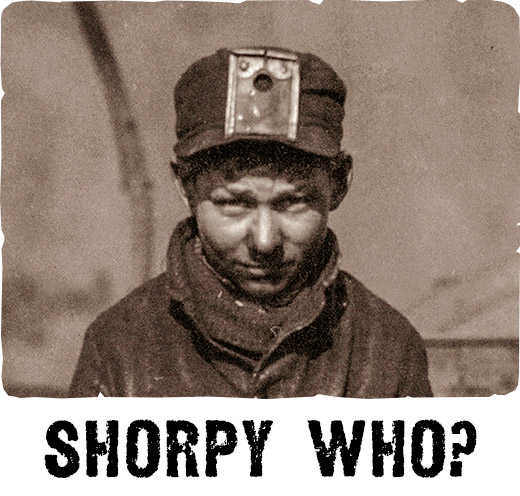
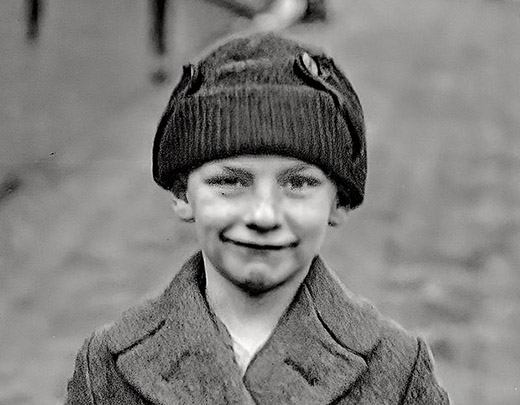
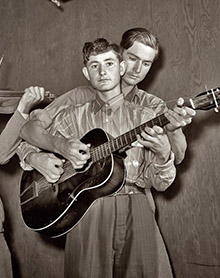
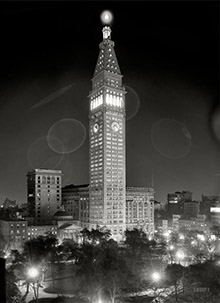
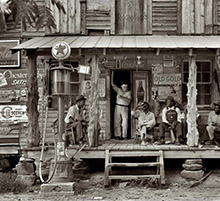
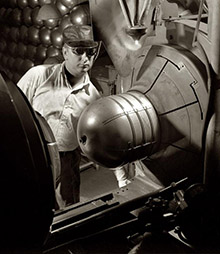
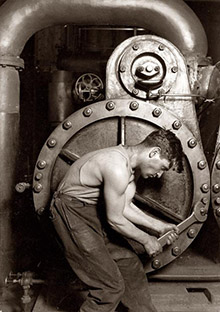
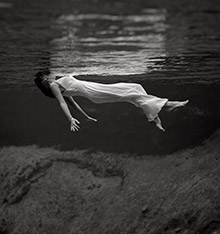
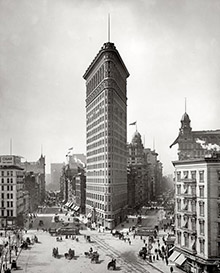



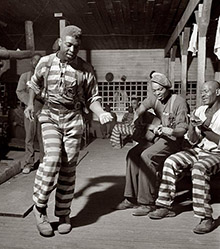
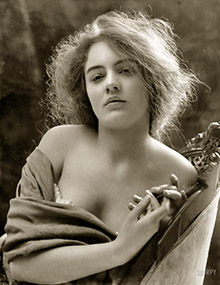
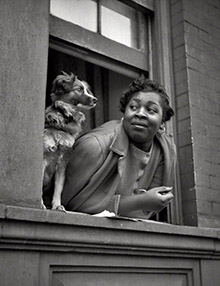

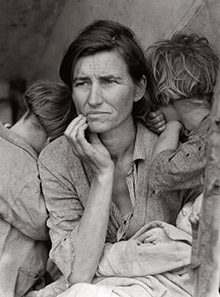

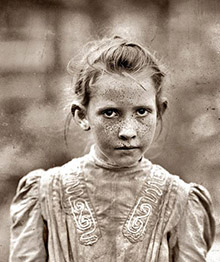
On Shorpy:
Today’s Top 5